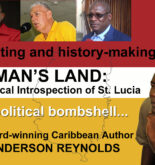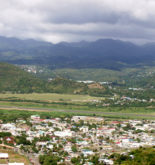During the 2021 general elections campaign and throughout his term in office, Allen Chastanet was vilified as a failed prime minister who worked against the interest of the very people he was supposed to serve and protect. Apparently, the voters agreed because the St. Lucia Labour Party (SLP) with the help of Richard Frederick and Stephenson King handed Chastanet’s United Workers Party (UWP) the second worse defeat (15 to 2) in St. Lucia’s history of general elections.
Time to Move On

The 2021 UWP defeat matched (and shared second place for worse defeat with) the rout Compton’s UWP handed to SLP in the 1982 general elections that followed the Labour government debacle induced by the Odlum-Louisy power struggle. In that election, 2 opposition seats went to Labour and 1 to the Progressive Labour Party. The honors of the worse defeat in St. Lucia’s general elections history go to the Vaughan Lewis led UWP when in 1997 the Kenny Anthony led SLP swept into power by a 16 to 1 majority.
Predictably, with the change in government, a switch has turned on. SLP zealots have put on their armor to defend everything the government does and to continue denigrating Chastanet, some pronouncing him an “asshole”, as if the more they disparage the former prime minister, the better their government will perform and the greater their chances of holding on to power come next elections; and as if denigrating Chastanet will make up for the void of a salable vision for the country. And now UWP zealots, to whom when Chastanet was in office he could do no wrong, have sharpened their swords to attack and criticize everything the new administration says or does, good or bad, waiting and hoping for the government to fail, just as their SLP counterparts had hoped and prayed for the Chastanet UWP government to flop.
The voters have spoken. The Chastanet-Must-Go mantra has been answered. So now it serves no useful purpose to continue to disrespect and belittle the former prime minister. After all, just five years ago the majority of voters had cast their votes for him and his party to take the reins of power.
If I remember correctly, SLP supporters had dehumanized Sir John Compton worse than they may ever dehumanize Allen Chastanet. To some, Compton was a Jab, a dictator of the worst kind, the very personification of Satan on earth, yet by the time of his death in 2007 he was pronounced the father of the nation. Rick Wayne, St. Lucia’s most famous and probably longest-serving journalist, who metamorphosed from one of Compton’s best allies to his worst critic and nemesis and who apparently took great pleasure in bringing to the nation breaking news of Compton’s dalliance with teenagers, wrote that: “No one comes even close to deserving more than John Compton the high honor of being declared St. Lucia’s Man of the Century.”
And Dr. Kenny Anthony, who effectively ended the illustrious reign of Compton, when, as noted above, he and his SLP swept aside UWP in the historic 1997 landslide electoral victory, the greatest in St. Lucia’s history, and who during his initial years as prime minister went to great lengths to downplay, if not denigrate, the legacy of John Compton, at the great man’s death he pronounced him a “Titan of a politician”… whose “sincerity and passion for this region, for the sovereignty of this region, no one can doubt.”
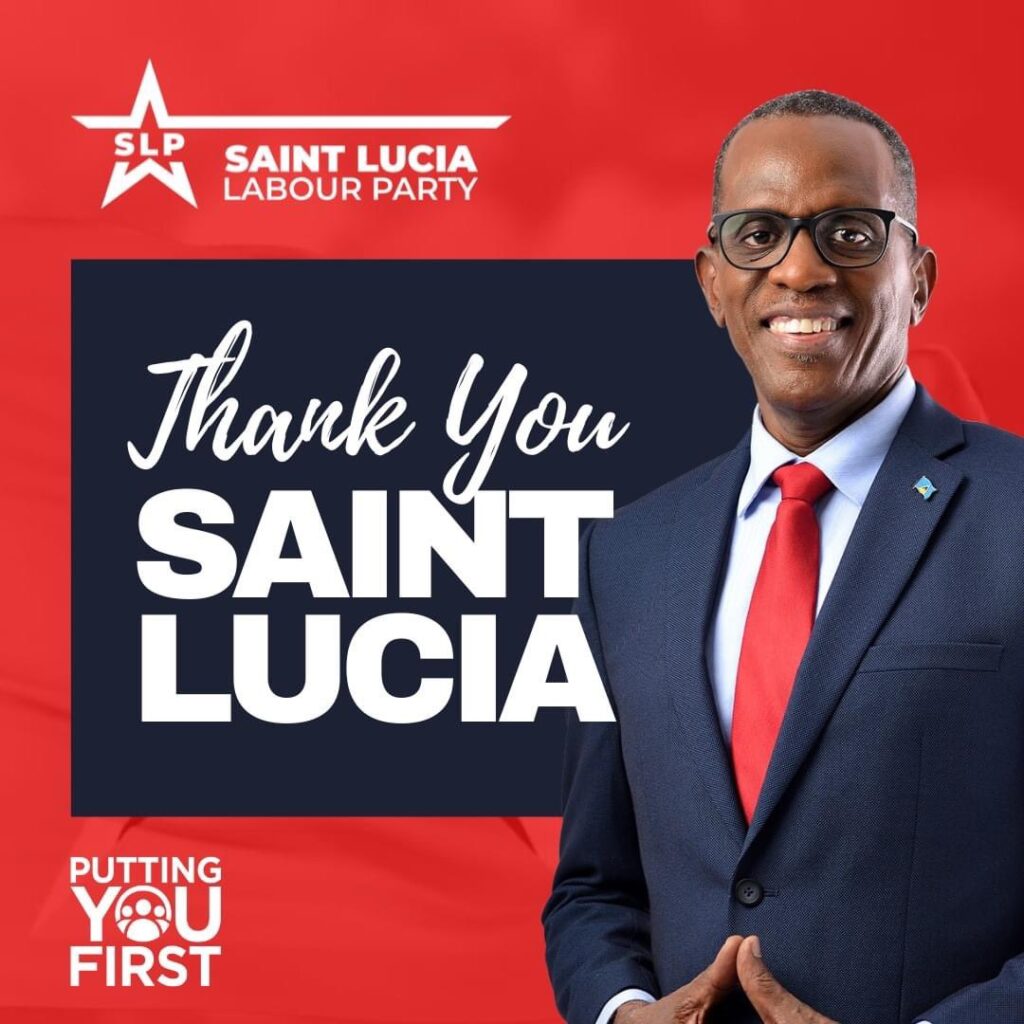
Life usually comes with many twists and turns and ups and downs. Chastanet can make a comeback. So, like with Sir John, those who are now vilifying him may need to be more circumspect because they may have to eat their words and heap accolades upon him many moons from now.
Chastanet and Compton have several other things in common. They were of similar skin tone. They were not born on St. Lucian soil—Chastanet was supposedly born on the French island of Martinique: according to Michael Chastanet, because of an incompatibility between his blood type and that of his wife, their children were prone to birth complications, so taking no chances his wife went and gave birth in Martinique; Compton said he was born in Canouan, one of the Grenadine islands situated between St. Vincent and Grenada, but as a child he spent a lot of time in St. Lucia, and at eleven settled there for good. Compton was of a seafaring people; Chastanet’s father began compiling his fortune as a boatbuilder and operator of ocean-going vessels.
Maybe what continues to gall some SLP operatives, especially the self-professed intellectuals, is that someone who seemingly appeared from nowhere, an imposter, and whom they regarded as a dunce, stole the coveted prime minister prize, something they have dreamed and fantasized about, from right under their nose? How dare Allen Chastanet become prime minister? The truth is Allen Chastanet defied the odds and notched one of the greatest achievements any St. Lucian can aspire to. For that, if not for his performance in government, he ought to be respected.
Moreover, the party zealots may want to take a page from the great George Odlum, who along with Peter Josie once spoke of violence and revolution, but in the end he saw the errors of his ways because as he lay dying, he was reported to have said: “I made a mistake. I thought politics was all. But it isn’t about politics. It is about redeeming your country from the inside out. It is about creating communities where people love one another, where political differences don’t divide us in a way that we cannot say that you are my brother and I am responsible for you.”
So, rather than taking every opportunity to denigrate Allen Chastanet, we would be better served studying the former prime minister and his UWP administration to glean lessons, understand and appreciate how his administration has helped illuminate the weaknesses or deficiencies in our political and governance system, and to identify the things his administration had gotten right that present and future administrations can take onboard.
Takeaways from Chastanet’s Administration
Chastanet made a successful bid for the government of the country in the 2016 general elections based on his business acumen, being the operator of award-winning hotels, and running the country as a business. Therefore, let’s start with his economic philosophy.
Lessons of Employment and Economic Development

The briefest way to characterize Chastanet’s economic thinking is to liken it to that of the Republican Party’s conservative economic stance of laissez-faire economics: small government, minimal regulation, reduced welfare state, reduced taxation, and as much as possible take the country’s economic activity out of the hands of government and into the hands of the private sector. Under this philosophy, Chastanet closed down Radio St. Lucia (RSL), induced closure of the Walcott House, discontinued the Destress Support Fund, caused the termination of the Derek Walcott Museum and Theatre project, eliminated the National Trust’s subvention, was suspected of seeking to privatize the EUR 50 million European Union funded Owen King European Union (OKEU) Hospital, restructured the St. Lucia Marketing Board to purportedly meet international standards and to be more export oriented and thus more viable, and privatized the St. Lucia Fish Marketing Corporation (SLFMC) through a government sanctioned and partnered takeover by Lucia Blue Ocean Sea Food.
Apparently, Chastanet regarded most of these entities as part of the welfare state and a drain on the national coffers.
However, in terms of saving the state money, voters, especially SLP supporters, didn’t fail to notice the ironic contradictions in the implementation of Chastanet’s economic policy. With these changes, he probably saved the country about $4 million annually, but then he turned around and outsourced the preparation of the government annual budget, which historically the department of finance had no difficulty preparing at no additional cost, to Ernst & Young for a reported annual bill multiple times the above mentioned $4 million cost savings. Chastanet explained it was necessary to engage Ernst & Young because government personnel had “great deficiency in understanding how to put the budget together,” and the company was helping government with its financial policies.
In terms of reducing the size of government and putting as much of the country’s economic activity in the hands of the private sector as opposed to that of government, Chastanet’s detractors also couldn’t fail to notice that contrary to his policy of privatizing and contracting the size of government, he gave up the opportunity for a Public Private Partnership (PPP) approach to the redevelopment and management of Hewanorra International and instead opted for the government to go it alone and increase its debt burden by about half a billion dollars.

Nonetheless, Chastanet’s instinct of revisiting activities and entities (though long-standing) that are proving to be a drain on the nation’s coffers to eliminate obsolete entities, reduce waste and inefficiency, and to determine whether privatization would serve the country best, is commendable, even if after review the decision is made to maintain the status quo.
Most people are all for preserving their country’s natural and cultural patrimony, so I can’t imagine that anyone would be against an entity such as the National Trust that was set up to do exactly that. But there is something to be said about NGOs being self-sufficient and self-sustaining and as independent of government as possible. Take the Soufriere Regional Development Foundation (SRDF). Government ceded the SRDF such income-generating assets as the Sulphur Springs Park, from which along with other assets (the Soufriere jetties, for example) it is generating, I was told, several million dollars annually, thereby fully funding its operations. If so, rather than the SRDF having to depend on government for its survival, isn’t its current situation the best of all worlds. So then it may be worthwhile exploring whether the National Trust can be similarly self-sustaining by putting additional income generating assets under its control, and by it becoming more proactive and efficient in sourcing grant funds and in generating revenues from its assets. However, even if after such exploration the best decision is to continue the government subvention, I think the Trust still stands to benefit from such an exercise.
Another of Chastanet’s economic/business philosophy or modus operandi is a willingness to do whatever it takes to bring foreign investment to St. Lucia and the notion that development scenarios encountered overseas can be transplanted wholesale to St. Lucia regardless of opposition to them, and regardless of their environmental and sociological fallout. Clearly, few would oppose the view that governments need to be more circumspect than Chastanet was in their development thrust. However, as mentioned in a previous article, in his development ganghoism Chastanet may have been on to something useful to St. Lucia.
The former prime minister enticed two business process outsourcing (BPO) enterprises—OJO Labs and ItelBPO—to Vieux Fort, albeit at a tremendous cost to the nation. The government reportedly spent millions of dollars bankrolling OJO Labs employee salaries and retrofitting its plant. But mindful of St. Lucia’s desperate employment situation, particularly among the youth, the several hundred new jobs these two companies account for are nothing to scoff at.

Chastanet was also trying to entice foreign companies to establish their headquarter operations in St. Lucia, which reminded me of the Barbados Welcome Stamp initiative of enticing first world professionals, whose jobs or occupations allow them to work at home, to come and work from Barbados on a 12-month visa, thereby enjoying the best of all worlds—living in a tropical paradise but with first world income. According to a paper by Wiltshire and Harmsen, compared to the short-stay tourism we are more accustomed to seeing, such long-stay or residential tourism (including the offshore medical schools in Vieux Fort) generates greater net economic benefits to the host country but with fewer environmental and sociological fallouts. Interestingly, if I remember correctly, Kenny Anthony had a vision of turning Vieux Fort into some sort of medical/wellness/university complex, which was in keeping with this concept of residential tourism. But it seems this vision has taken a back seat. Maybe with the reelection of Labour and the demise of DSH the concept will be revived.
All this suggests that it may be in the country’s benefit for the prime minister, Philip J Pierre, to have a powwow with Allen Chastanet and thus profit from some of his out-of-the-box thinking. As pointed out elsewhere, the only question with some of these initiatives is that: do we have to pay as much as did Chastanet for OJO Labs to entice these businesses, and if we are going to incur such large cost, shouldn’t we gain company shares in return? Also, if it is a policy of government to subsidize startups, shouldn’t we be giving priority to St. Lucian owned startups?
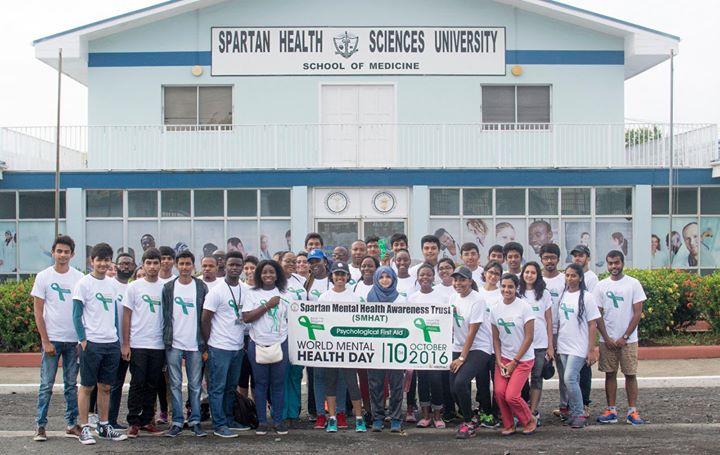
Elsewhere (No Man’s Land: A Political Introspection of St. Lucia), I have noted that St. Lucia’s persistently high unemployment represents one of the country’s biggest and most intractable problems. Yet our politicians treat it as a hiccup to address or talk about only during general election campaigns, their attempted remedies akin to band-aid solutions. But our joblessness predicament results from structural unemployment and can only be corrected with a comprehensive medium to long-term strategy that would likely span several administrations, therefore solving our unemployment problem would require the commitment of both SLP and UWP to the agreed-upon strategy. Thus, a dialog between Philip J. Pierre and Allen Chastanet, or between SLP and UWP, geared towards the economic progress of the country might be the first step to realizing an unemployment rate compatible with that of first-world countries. Barbados has done it, so why can’t we, owners of two-thirds of CARICOM Nobel prizes, and the country with the world’s highest per-capita Nobel Prizes?
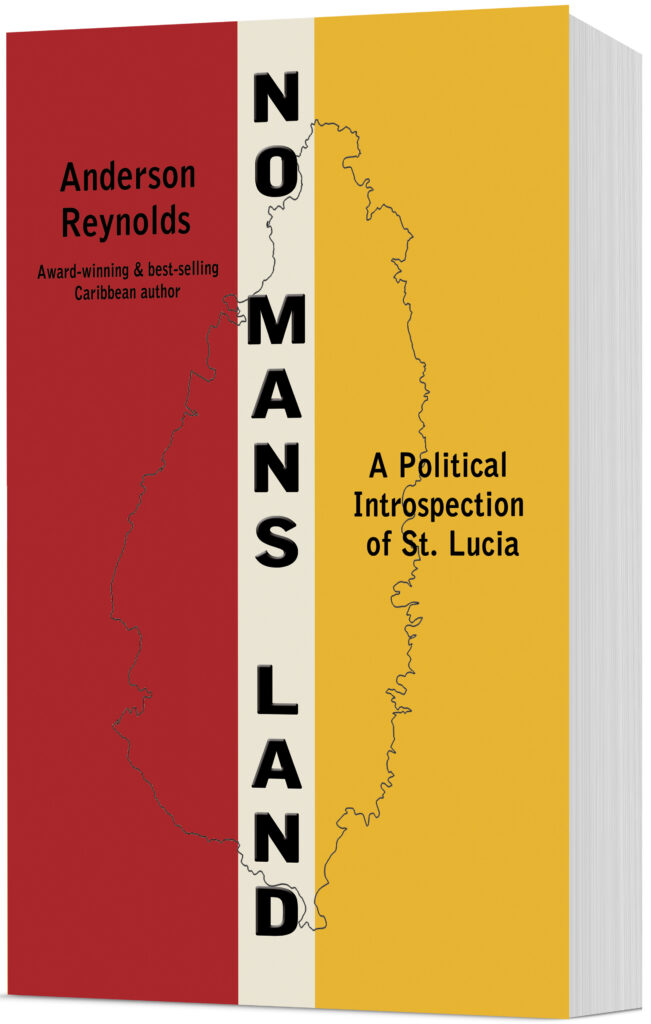
Now, I’m sure that many SLP supporters will scorn the notion of their prime minister conferencing with Chastanet. After all, they have derided him as an empty head. But if he were that dull, why did Compton appoint him director of tourism and then minister for tourism? And why, according to Chastanet, did the Kenny Anthony administration consider him for serving in a tourism capacity? And how does one explain his meteoric rise to the pinnacle of political power? A feat the great George Odlum, a candidate for the St. Lucia Man of the Century, couldn’t achieve even after a lifetime of trying.
Moreover, as someone who is more of a St. Lucian outsider than an insider (he grew up and did most of his schooling in North America), Chastanet may well have a unique perception of St. Lucia from which the country can profit. But perhaps he misread the oracle. Perhaps he wasn’t meant to be the hero, the one at the hem; but the seer to admonish the hero. But the gods, in a moment of derision, had allowed him to become prime minister.
Lessons of Putting St. Lucians First
Chastanet was accused of putting foreigners first and St. Lucians last. He was accused of having double standards, treating St. Lucians differently to tourists regarding COVID protocol. However, it has been generations that governments and the people of St. Lucia have been giving tourists and other foreigners, particularly if they are white, better treatment than their fellow citizens. It is just that because Chastanet is (almost) white and he has been unapologetic about his favorable treatment of foreigners, that the practice has gained greater attention.
So once again we have to be thankful to Chastanet for opening our eyes to the perverted practice of discriminating against ourselves in favor of tourists, most of whom happen to be white. How many times have we heard: we need to keep our streets clean, safe and signed for the tourists as if St. Lucians in and of themselves do not need safe and clean streets. The best of what we offer needs to be reserved for the tourist. Our best smiles, our sweetest foreign-accented voices, our kindest dispositions. The “St. Lucia is simply beautiful” aspect of the country is for tourists and not for locals. It is as if the best of what St. Lucia has to offer is too good for St. Lucians.
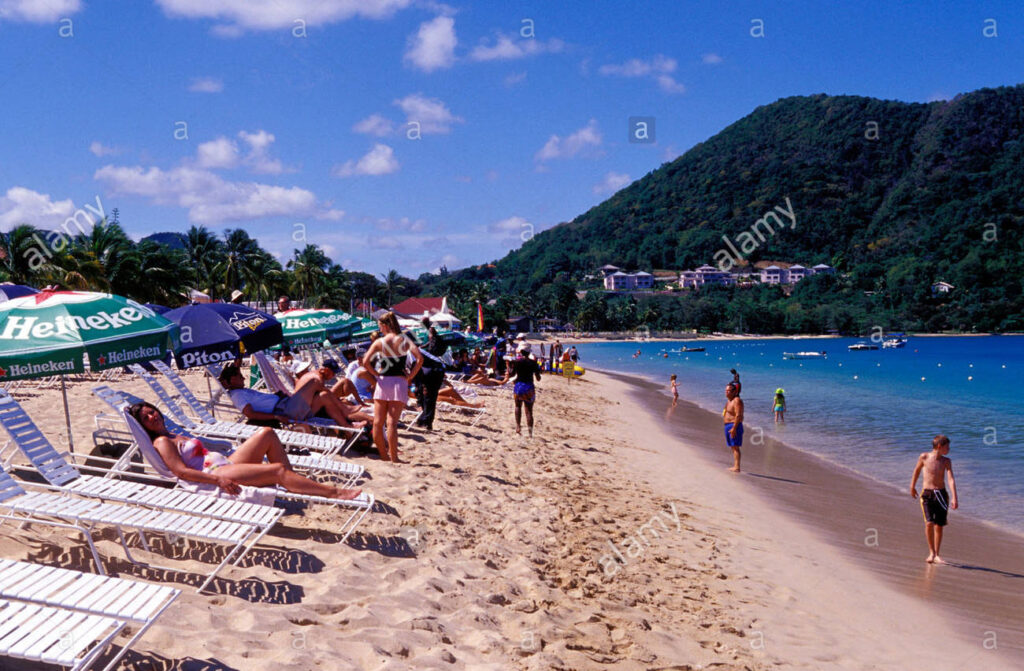
In his third book on St. Lucian politics, Lapses & Infelicities, Rick Wayne reported that on the eve of the 1987 general elections, Julian Hunte, former SLP leader, and former minister for foreign affairs and UN Ambassador, commiserated that too much of St. Lucia was in the hands of foreigners and that was demoralizing St. Lucians. Interestingly, Julian Hunte was chairman of the National Development Corporation turned Invest St. Lucia, whose primary function today seems to be ceding to foreigners prime St. Lucian real estate.
Indeed, from slavery to colonialism to imperialism to globalization, the island has never operated in the best interest of its masses. It wasn’t designed to cater to them; and like biological genes, cultural memes and patterns of behavior are passed on from generation to generation; and a history of dispossession and exploitation makes future generations susceptible to more of the same.
Clearly, giving foreigners priority over citizens wasn’t Chastanet’s invention. It is deeper than that. To get to the crux of it may require the peeling off of layers upon layers of our psyche.
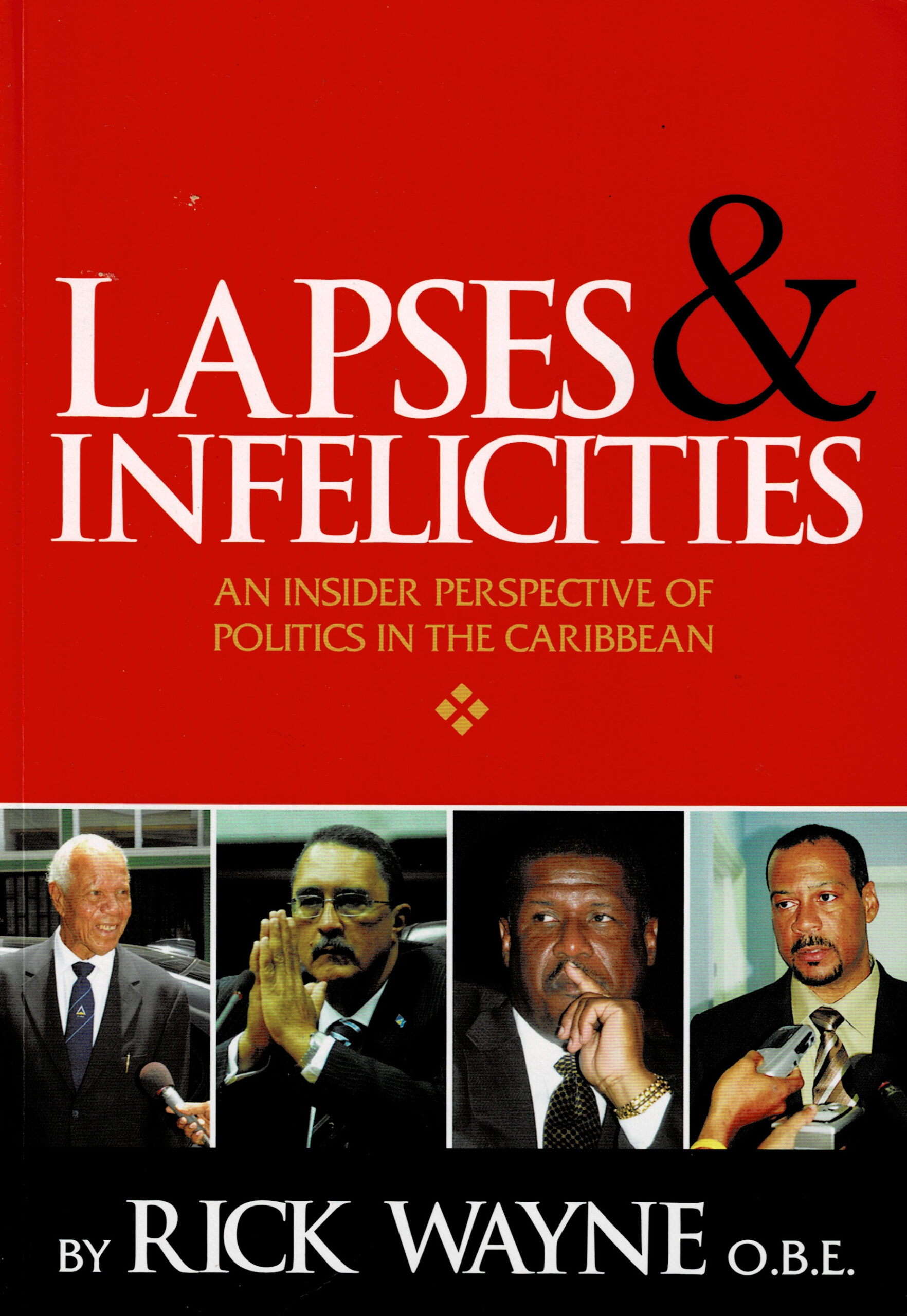
With the silent acquiescent of our governments, the hotels have developed ingenious ways to keep us away from the beaches fronting their properties, making a lie of what we call the “Queen’s Chain”. Upon entry into St. Lucia, the tourist, particularly if they are white, sail through customs like a breeze, while we thoroughly examine the luggage of other travelers. Now, a St. Lucian can appreciate that tourists are allowed through unhassled because they are less likely to bring in items for sale or items meant to remain in the country. But to my American-born-and-raised cousins this sure smack of black people discriminating against themselves in favor of whites, a form of discrimination they are likely to regard as worse than what they experience in American. For decades our governments have bent over backward to give hotels tax exemptions and other concessions, while local entrepreneurs languish. The whole orientation of St. Lucia seems about serving tourists and foreigners, giving them preferential treatment. As mentioned above, in the name of foreign development investment (FDI), Invest St. Lucia serves as a vehicle for ceding to foreigners some of the nation’s choicest real estate. Indeed, Teo Ah King’s so-called Pearl of the Caribbean development was informed by Invest St. Lucia’s Vieux Fort real estate portfolio. Meaning, turning a deaf ear to local initiatives or proposals, Invest St. Lucia was there just waiting for foreign developers to take over these lands. So once again, contrary to SLP’s protestation, Chastanet can’t take all the blame for the DSH misadventure. Maybe now that Chastanet has helped shine a light on the tourist-first or foreigner-first phenomenon, we can start reversing the trend.
Interestingly, it was Kenny Anthony and the St. Lucia Labour Party, the party of George Charles, the father of the St. Lucia labor movement, and the party of George Odlum, the great consciousness-raising orator, and not the UWP or Chastanet or Compton, who, no sooner he became prime minister, pronounced loud and clear that, as opposed to agriculture, tourism and the service industry was now the in thing.
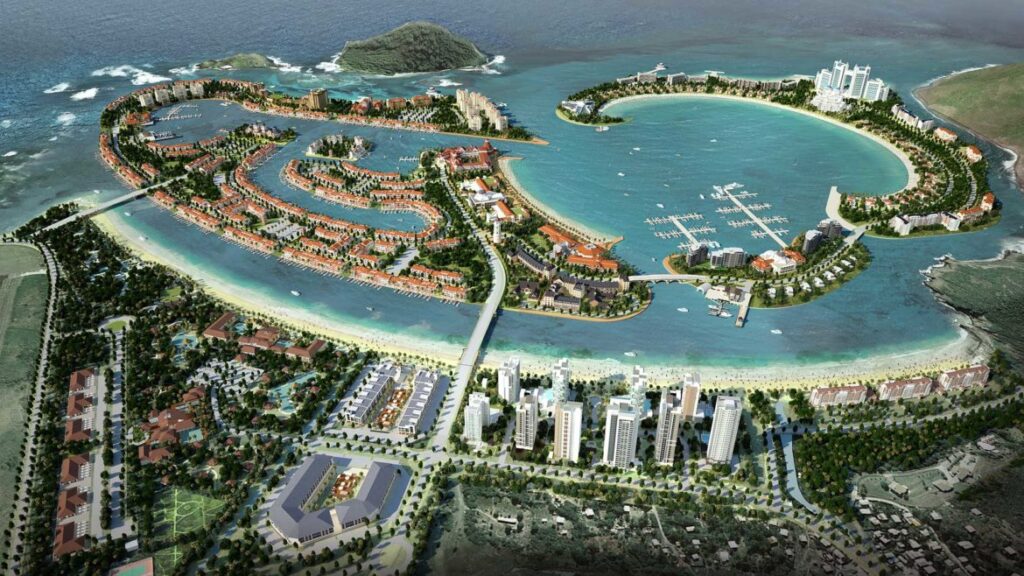
The politicians try to portray the opposition as thoroughly evil, thoroughly bad for the country. Now, I can see how this benefits them in winning elections, but how does this benefit the populace? Should it matter to us what side of the political aisle solutions to the country’s problems come from? Won’t it be to the benefit of the country if Pierre could sit with Chastanet for a briefing on the ideas and initiatives he had in mind for the country? After a few months in office, Chastanet signed the DSH agreement, which both Dr. Anthony and Dr. Hilaire said had been the starting point of the discussions and negotiations with the developer and since that initial stage, their administration had made considerable headway in negotiating a better deal for Vieux Fort and St. Lucia. Wouldn’t it have been to the benefit of the people if, before signing the agreement, Chastanet had been apprised of the former administration’s progress, which would have enabled him to start the negotiations at the point where SLP had left off, instead of reverting to the very start? It was almost as if Labour was happy for Chastanet to sign the outrageous agreement for the privilege of having the last laugh. If so, in words inspired by Third World’s 95 Degrees in the Shade, entertainment for them, martyrdom for Vieux Fort and St. Lucia.
Lessons of Perversion, Corruption & Misadventure
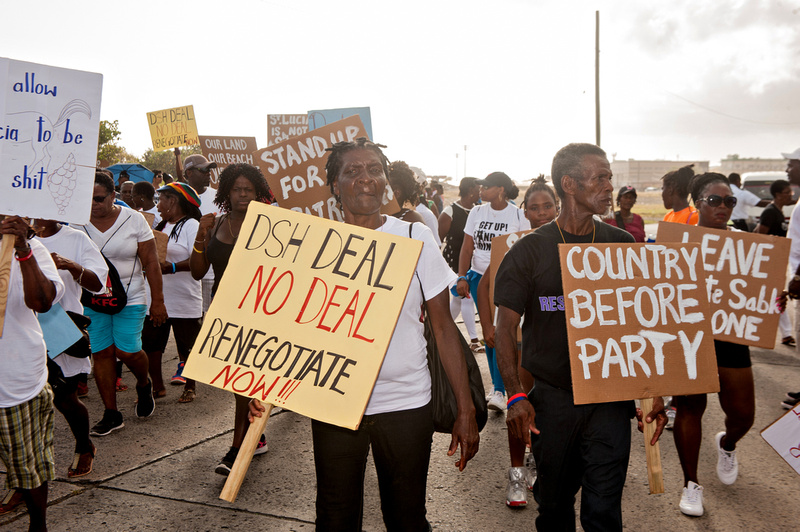
Some SLP zealots took offense when in a previous article, Aftermath: A Provocative Post-Election Analysis of St. Lucian Politics, I noted that the DSH document that Chastanet signed was on the table long before he took the reins of government. But they might have gotten even angrier if I had mentioned the suspicion that it was Invest St. Lucia under the former SLP administration that had drafted the initial DSH document. They were also livid when I noted the fact that Chastanet wasn’t the creator of the Citizen by Investment Program (CIP).
It has been said that history is written by the victors. Well, it seems some SLP supporters would like to rewrite history and blame the former prime minister for the establishment of the CIP. After all, how could the party of the maléwé, the party of such patriots and national heroes as George Charles and George Odlum, be the one to sell St. Lucia’s birthright. Something about this just doesn’t ring true! However, the blaming of Chastanet for CIP brings the following story to mind.
An entrepreneur of a small town conjures the brilliant idea of a brothel as a means of beefing up his town’s economy and putting more dollars in his pocket. In establishing his brothel, he sets the price of a bonm (a paid unit of sex) at $200, and he subjects his sex workers to monthly medical checkups and requires his customers to present up-to-date medical reports clearing them of sexually transmitted diseases. So far, so good. But then another entrepreneur, knowing a good thing when he sees it, establishes a second brothel, and in the spirit of competition, realizing that the demand for the services of sex workers is elastic, meaning a decrease in the price of a bonm will cause the quantity of bonm services demanded to increase by a greater percentage than the percentage decrease in price and thus revenues must rise, he cuts the price of a bonm by half, waives the medical report requirement for customers, and mandates annual rather than monthly medical checkups for the sex workers. With these changes, the ills of prostitution became clear for all to see. So the first entrepreneur is now expressing misgivings about ever bringing prostitution to town. But the genie is already out, the pandora’s box has been cracked wide open.

In this story, who should we blame for the town’s prostitution? Shouldn’t we blame the first entrepreneur for the introduction of the prostitution, and the second for taking prostitution downhill? If so, who deserves the lion’s share of the blame? Do misgivings, apologies, and good intentions free us from blame?
Regardless of whom to blame, by drawing our attention to the evils of the CIP, Chastanet’s intervention may have been a blessing in disguise. Now the present SLP administration can act on its misgivings and discontinue the CIP.
Thanks to the machination of Guy Joseph, Chastanet’s administration has been marked as one of the most corrupt governments in St. Lucia’s history. But even something so negative, so enraging as corruption can produce some good. The reported corruption of Chastanet’s government demonstrates how bad things can get if allowed to go unchecked, and it points to the handicaps of our constitution that enable such corruption. Our constitution imbues cabinet and the prime minister with undue power, and in the absence of the necessary checks and balances this power lends itself to corruption. Once again Chastanet’s administration has thrown some light on an important aspect of our governance—our constitution—which, with more than two-thirds of the House of Assembly votes, the Philip J. Pierre government has a golden opportunity to reform and thus preclude future governments from engaging in the kind of excesses attributed to Guy Joseph. In this regard, the government has no excuse because Stephen King’s article, Enough is Enough, as well as the 2011 Constitutional Reform Report, and the recently (2021) published book, No Man’s Land: A Political Introspection of St. Lucia, spell out in great detail the constitutional changes/reforms that would help curb government corruption.
Chastanet attempted to impose DSH on Vieux Fort in a roughshod manner, with no consultation with Vieux Fortians, and there was no established Vieux Fort entity to advocate for the rights and interest of residents. There was the Vieux Fort South Constituency Council, but as a politically appointed body, it was simply a surrogate of the central government, and thus was of little use in safeguarding the interest of Vieux Fort in the face DSH. Such was the void of effective Vieux Fort leadership and representation, that an impromptu group, the Vieux Fort Concerned Citizens Coalition for Change, had to spring up overnight to look after the interest of Vieux Fort vis-à-vis DSH. The Constitutional Reform Commission and No Man’s Land: A Political Introspection of St. Lucia addressed the necessity of local government reform. An elected as opposed to an appointed Constituency Council would have been more sensitive to the imperatives of the people they serve and thus would have served as a counterweight to DSH or any other initiative deemed injurious to Vieux Fort. Therefore, by illuminating the glaring need for elected local government as an important dimension of representative government and as a safeguard of local interest against the avariciousness of central government, Chastanet’s UWP administration was yet again a blessing in disguise.
My suspicion is that constitutional reform will be a prerequisite for a successful SLP reelection bid.
Clearly, bad as it may have turned out, Allen Chastanet’s administration may have been a blessing in disguise. His government’s blunders and misadventures may have helped clarify the right path the country needs to take to prosper.
Please share and provide feedback below.
Related Links
Biography of Dr. Anderson Reynolds
Watch NO MAN’S LAND book trailer
Buy Dr. Reynolds Books Online
Buy Dr. Reynolds Books in St. Lucia
Recent Blogs
The Fear of COVID Vaccines
Aftermath: A Provocative Post-Election Analysis of St. Lucian Politics
![]()

